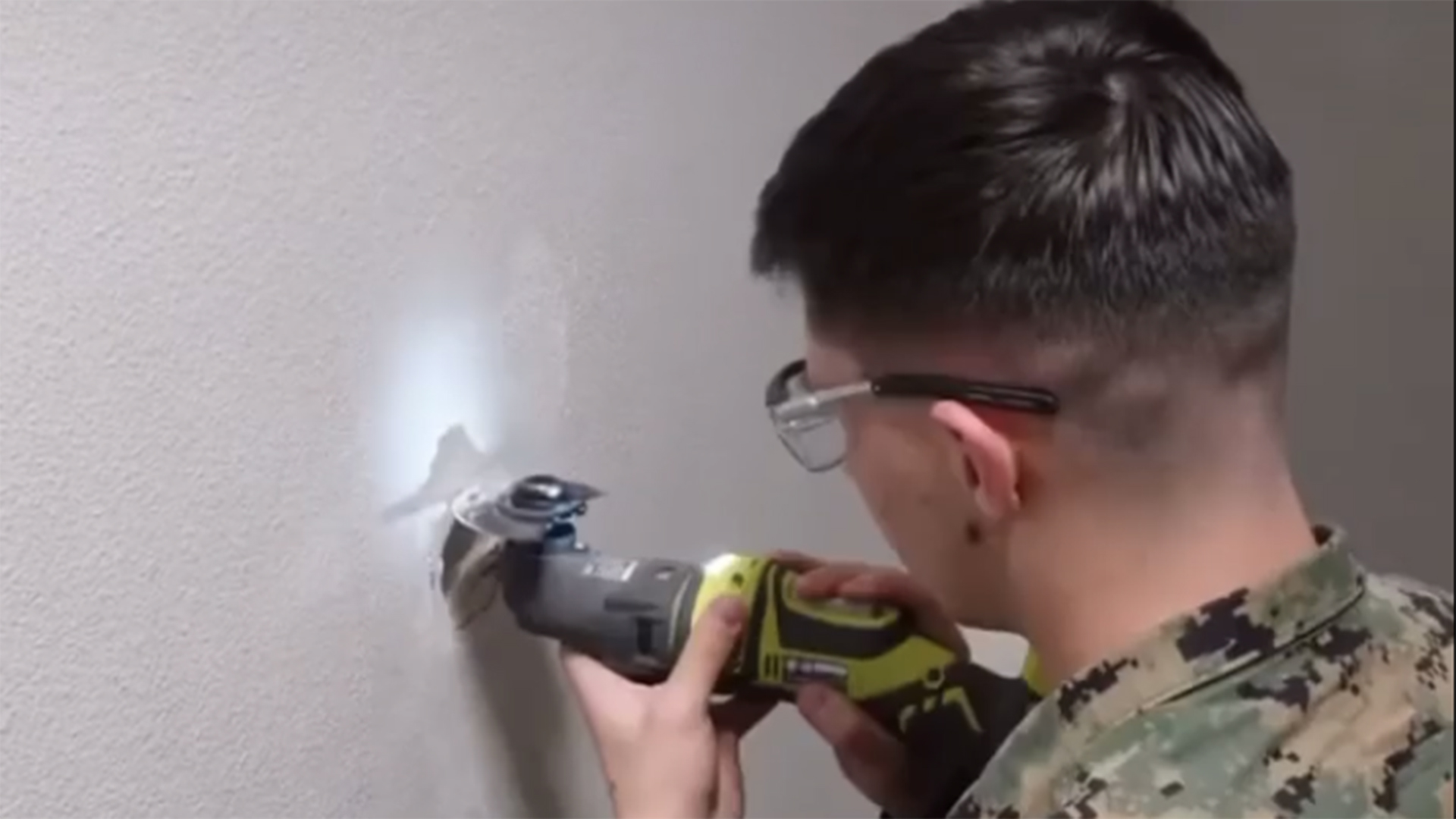

As the military as a whole grapples with how to fix substandard living conditions for troops, Marines at Camp Pendleton, California are being encouraged to paint their rooms, patch holes in their walls, get rid of mold, and make other home repairs themselves.
“Self-help requests allow Marines to not only fix minor damages in their rooms quickly, but also develop smaller scale home repair skills,” according to a video about the program that was shared on Reddit.
The video explains how the base’s maintenance program allows Marines to request approval from their barracks or area facility managers to fix problems in their rooms and then acquire the tools and other materials to make the repairs.
Several Reddit users were decidedly skeptical about the value of this self-help program. One user said that it is difficult for Marines to order what they need to repair their rooms because the tools and other materials are issued on a first-come, first-serve basis. Another posted that this program shifts the burden of barracks maintenance on the Marines themselves. Yet another user was concerned that Marines may end up failing inspections if their repairs are deemed unsatisfactory.
Subscribe to Task & Purpose today. Get the latest military news and culture in your inbox daily.
Marine Corps officials said the Camp Pendleton Self-Help Program gives Marines more independence, much as renters in the civilian world can make small-scale or cosmetic repairs.
The program is available at no cost to tenants in Bachelor Enlisted Quarters, or BEQ, said 1st Lt. Taylor M. Dorsey, a spokeswoman for the base. It allows service members to replace light bulbs along with batteries in smoke detectors and door-locking mechanisms. They can also repaint their rooms before moving.

By allowing Marines to make some repairs by themselves, Corps officials are not indicating that civilian contractors are taking too long to repair issues in barracks at Camp Pendleton, Dorsey said.
“The Self-Help Program is merely an option to expedite the process for minor discrepancy, therefore, allowing for more labor support toward complex requests requiring skilled maintenance personnel,” Doresey said.
Marines are required to wear all necessary protective gear when making repairs and they can ask for help from BEQ managers and program personnel on how to fix the problems, including instructions on using the necessary tools, she said.
Self-help programs, such as the one at Camp Pendleton, vary depending on the specific installation, said Maj. John Parry, a spokesman for Marine Corps Installations Command.
“The self-help program is about empowering Marines to be able to use their own initiative to make a repair at no cost of their own if they deem it a better option than waiting to make a repair,” Parry told Task & Purpose.
Marines who opt to fix maintenance issues in their barracks should contact their chain of command in order to get the time needed to make the repairs, Parry said.
“Marines living in the barracks have varying degrees of experience with independent living and technical skills,” Parry said. “Self-help provides resources for Marines who would like to solve a maintenance problem or even make improvements to their assigned spaces on their own time.”
Last year, the Government Accountability Office, GAO, found that thousands of U.S. service members across the U.S. military were living in unacceptable conditions, including 17,000 Marines and 5,000 sailors.
Military barracks residents told the GAO that it can take three months for maintenance issues to be checked out, and some problems such as mold in the shower and broken air conditioning are never fixed, no matter how often they are reported.
Since the report came out in September, the Marine Corps has inspected all its barracks worldwide to understand all the issues that need to be addressed, Sergeant Major of the Marine Corps Carlos Ruiz told lawmakers on March 20.
The Marines have already started to install air conditioning at barracks in locations where it is very hot, Ruiz said. In the long term, the Corps plans to demolish barracks that cannot be refurbished.
“I think the final touch on it is the commandant said: OK, we will put the way we handle barracks into the IG [Inspector General] Marine inspection checklist,” Ruiz said. “So now we will know, all over the Marine Corps, who’s not meeting the mark; and commanders, leadership will be held accountable.”
Marine Corps Commandant Gen. Eric Smith told reporters last year that he estimates it will take 10 years to fix all the problems with barracks because there aren’t enough construction companies to tackle all the repairs that are needed.
Smith’s plans for addressing barracks problems include professionalizing Marine Corps barracks managers, he said during the Military Reporters & Editors Association annual conference in October.
“I don’t want to put a young corporal or a sergeant who is not a barracks manager in charge of the barracks,” Smith said at the time. “That’s how you fix the public works: You put a professional to a professional.”
The latest on Task & Purpose
- Air Force fires two medical commanders at Joint Base Charleston
- Navy fires commodore of Naval Special Warfare Group Eight
- Families at Edwards Air Force Base living in RVs for housing relief
- Niger cuts ties with US military
- Navy has fired at least 3 commanding officers for DUIs in 2024
